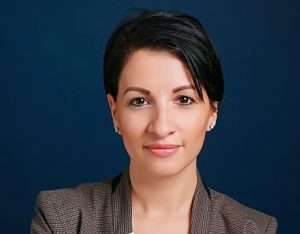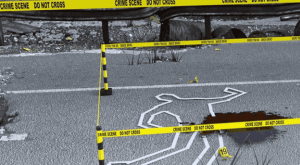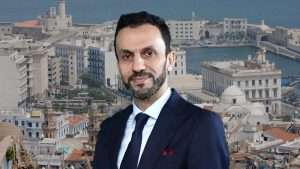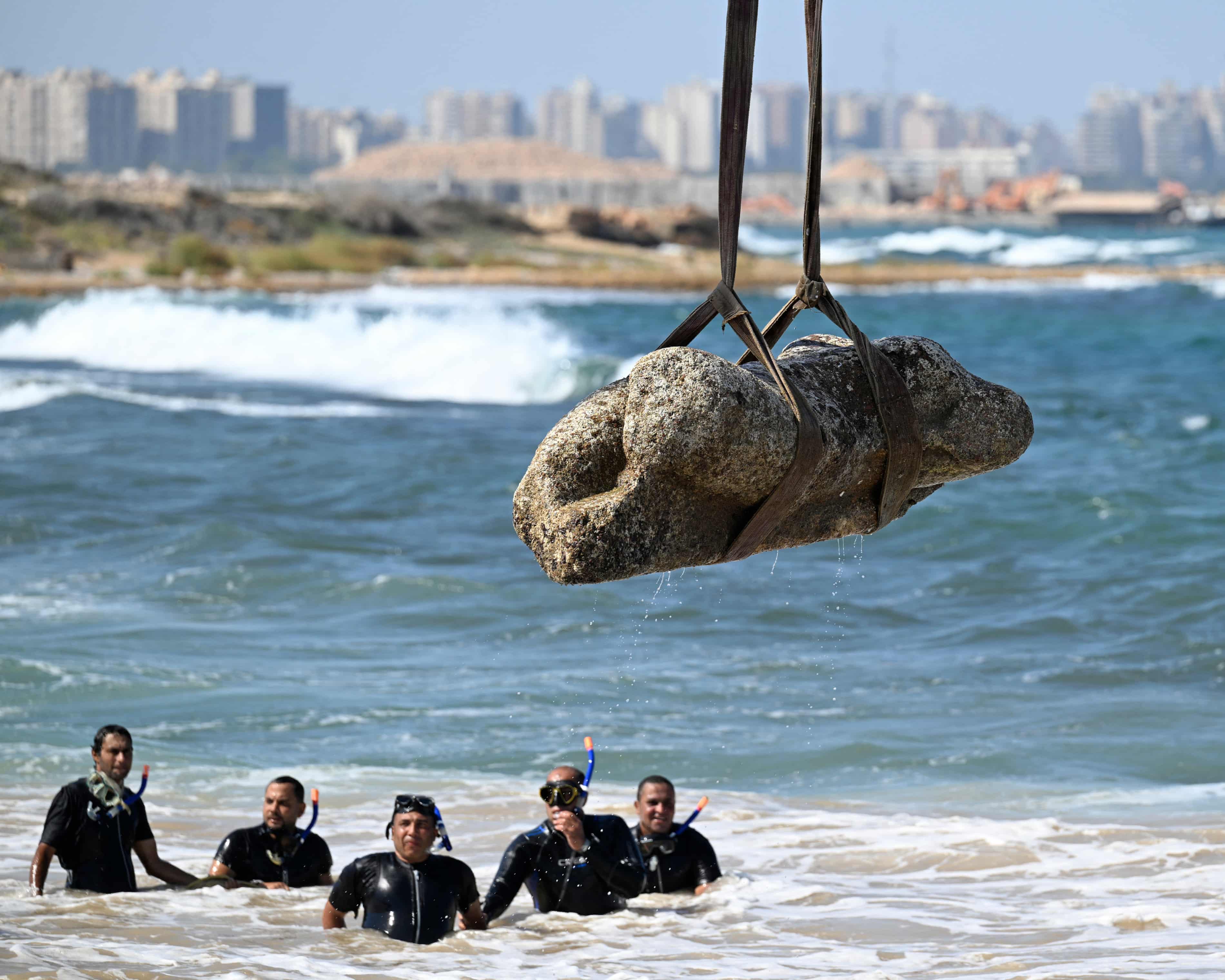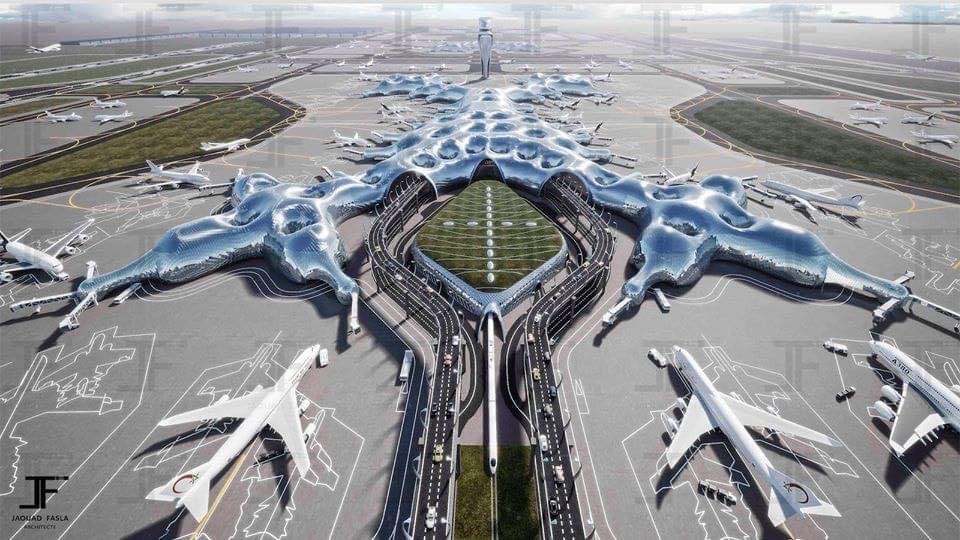Ali Sarraf: Libya needs a new generation of leaders
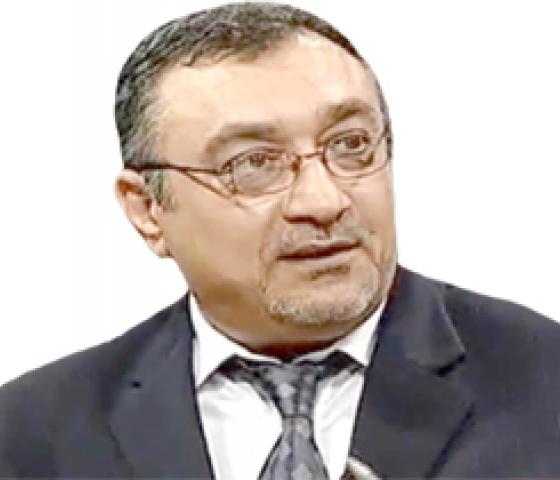
Haftar may have many qualities as a future president but a number of factors exclude him for the top job. So then who should steer the country in the right direction and what is the gesture we need from this soldier?
The wheel of the crisis in Libya has been endlessly spinning for some two years over whether Field Marshal Khalifa Haftar is entitled or not to run for president.
The issue has topped a full decade of going in circles over the legitimacy of this one figure or the other.
This fruitless pattern is interesting but also ironic for several reasons.
The first is that the field marshal has deemed victory for himself to be guaranteed in advance, to the extent that clinging to a constitutional text that does not exclude him has become so sacred that it amounted to sufficient reason to keep all of Libya revolving in a vacuum till the elusive “solution” is found.
The second reason is that an earthquake like that in Turkey will not occur in Libya. In that sense, life is supposed to be eternal for presidential hopefuls and it is all worth the wait.
Then the third reason is that the crisis is personal. This is not the case with Haftar alone. It pertains to all the others who cannot bring themselves to step aside and give others the opportunity to pave the way for an end to the crisis.
The fourth reason is that the supposedly sacred cause in Libya amounts to nothing but disputes over positions between interested parties and Haftar is most particularly setting this example.
The fifth reason is that Libya will have to wait a long time before parliament and the State Council end their Byzantine discussions. This exactly what has been happening since the start of the so-called “dialogue” on the required constitutional amendments, dealing with such matters as electoral regulations and related details.
READ Hafed Al-Ghwell: Libya’s transition stuck in ‘D’ with handbrake on
Then the sixth reason is that countries concerned with the crisis are apparently supposed to continue their mediation efforts forever. This is the case with the United Nations, which will go on replacing one envoy with another until it learns the art of procrastination from the Libyans.
The seventh and last reason is that when elections finally do take place, the Libyans, who resent the two rival governments in the east and west, are supposed to elect only one of the figures who are struggling for power, because we are supposed to believe Libya cannot and could not give birth to anyone else for today and the future except them.
The crisis which has been going on for 12 years has provided every aspirant with the opportunity to examine his own ambitions. Should we expect this to continue for another 12 years, and maybe another after that, without knowing what those aspirants are trying to achieve in the duration?
Haftar is a national figure who deserves appreciation. There is no doubt about that. He made valuable contributions in combating terrorism and extremism. He also succeeded in maintaining stability at least in one part of the country and prevented it from being plundered by militias. This is to his credit. However, patriotism is not about “After me, the deluge.” It is about sacrifices, as every soldier knows, much more than any thing else.

There is no doubt that Haftar has his own vision of the future for Libya and his view of its economic affairs and regional and international relations.
But he and his peers are talking to a people they barely know. They are addressing a country from the past, not the one that has been torn apart by the wheel of strife endlessly spinning in the void.
Libya is a country in need of social, economic, institutional and cultural re-building.
Quite simply, Libya needs new leaders, at every level. Young technocrats, with a comprehensive national vision, clean hands, dreaming of development and social welfare and complying with the requirements of the law, are the best option for reconstruction.
An entire generation has been lost in the cultural and political distortions caused by Muammar Gadhafi. None of the contending figures has had the audacity to deny they were part of those distortions nor that their mental and behavioural outlook was not affected by them, unless, at that time, they were living on Mars.
Haftar himself, as well as Fathi Bashagha, Khaled al-Mishri, Abdulhamid Dbeibah and Aguila Saleh, all the way to Salah Badi, Haitham al-Tajouri and Osama Al-Juwaili, as well as others, are part of the crisis. They have proven all along they are not part of the solution. They are not, by any modern standards, at least culturally, qualified to be state-builders.
READ Analysis: The future of Turkey’s role in Libya
The militias prevailing in Libya are an expression of the fragmentation of tyranny, not an expression of its demise. Nor are they an expression of protest against it, because they are a continuation of the old despotic rule in new forms.
This is what the Libyans know with their collective awareness and indeed feel, with or without expressing it clearly.
Haftar should, perhaps more than anyone else, stop the wheel from spinning in the vacuum. It would be worthy of him to prove that patriotism involves self-sacrifice. This is what brave soldiers usually do.
There is no need to expect an earthquake that will turn everything topsy-turvy. Libya has been in the middle of an earthquake for the last 12 years. It is time for a third generation to go on a national rescue mission.
The seventh and last reason is that when elections finally do take place, the Libyans, who resent the two rival governments in the east and west, are supposed to elect only one of the figures who are struggling for power, because we are supposed to believe Libya cannot and could not give birth to anyone else for today and the future except them.
The crisis which has been going on for 12 years has provided every aspirant with the opportunity to examine his own ambitions. Should we expect this to continue for another 12 years, and maybe another after that, without knowing what those aspirants are trying to achieve in the duration?
Haftar is a national figure who deserves appreciation. There is no doubt about that. He made valuable contributions in combating terrorism and extremism. He also succeeded in maintaining stability at least in one part of the country and prevented it from being plundered by militias. This is to his credit. However, patriotism is not about “After me, the deluge.” It is about sacrifices, as every soldier knows, much more than any thing else.
There is no doubt that Haftar has his own vision of the future for Libya and his view of its economic affairs and regional and international relations.
But he and his peers are talking to a people they barely know. They are addressing a country from the past, not the one that has been torn apart by the wheel of strife endlessly spinning in the void.
Libya is a country in need of social, economic, institutional and cultural re-building.
Quite simply, Libya needs new leaders, at every level. Young technocrats, with a comprehensive national vision, clean hands, dreaming of development and social welfare and complying with the requirements of the law, are the best option for reconstruction.
An entire generation has been lost in the cultural and political distortions caused by Muammar Gadhafi. None of the contending figures has had the audacity to deny they were part of those distortions nor that their mental and behavioural outlook was not affected by them, unless, at that time, they were living on Mars.
Haftar himself, as well as Fathi Bashagha, Khaled al-Mishri, Abdulhamid Dbeibah and Aguila Saleh, all the way to Salah Badi, Haitham al-Tajouri and Osama Al-Juwaili, as well as others, are part of the crisis. They have proven all along they are not part of the solution. They are not, by any modern standards, at least culturally, qualified to be state-builders.
READ Italy PM signs huge gas deal with Tripoli government in Libya
The militias prevailing in Libya are an expression of the fragmentation of tyranny, not an expression of its demise. Nor are they an expression of protest against it, because they are a continuation of the old despotic rule in new forms.
This is what the Libyans know with their collective awareness and indeed feel, with or without expressing it clearly.
Haftar should, perhaps more than anyone else, stop the wheel from spinning in the vacuum. It would be worthy of him to prove that patriotism involves self-sacrifice. This is what brave soldiers usually do.
There is no need to expect an earthquake that will turn everything topsy-turvy. Libya has been in the middle of an earthquake for the last 12 years. It is time for a third generation to go on a national rescue mission.
The author is an Iraqi columnist and writer. This article originally appeared in Arab Weekly
The views expressed here do not necessarily reflect those of Maghrebi.org but we do nonetheless encourage freedom of expression and even the ‘right to reply’. If you want to contribute to the Opinion section, feel free to send your article to opinion@maghrebi.org with a detailed bio including a twitter handle at the end of the piece.
Want to chase the pulse of North Africa?
Subscribe to receive our FREE weekly PDF magazine




